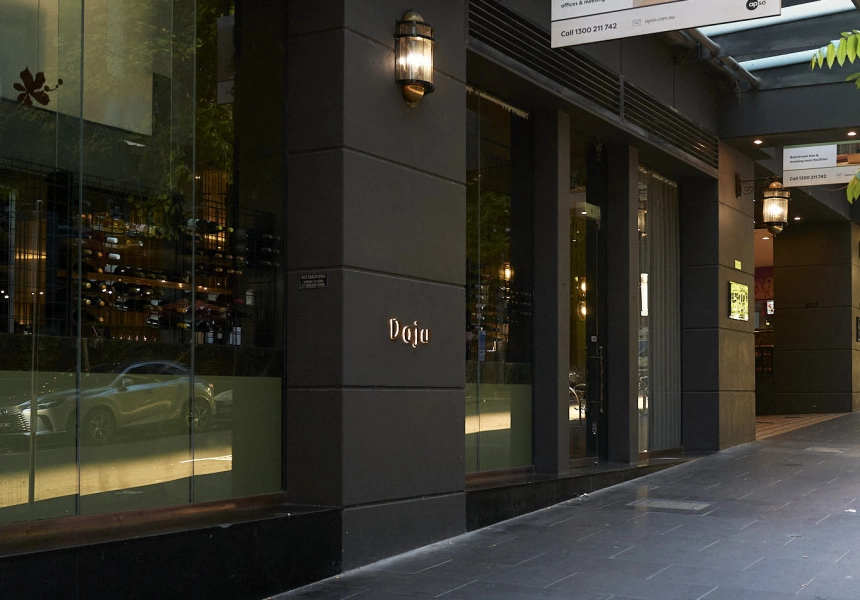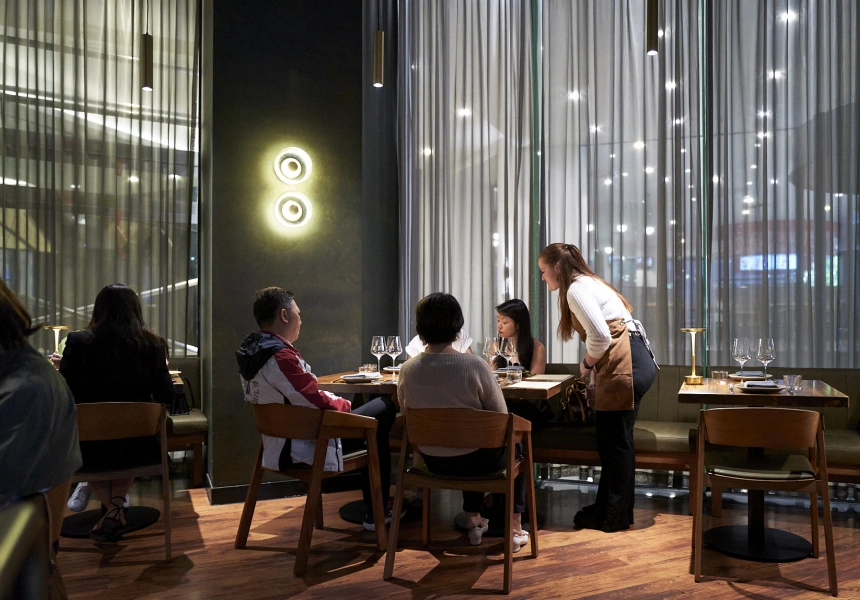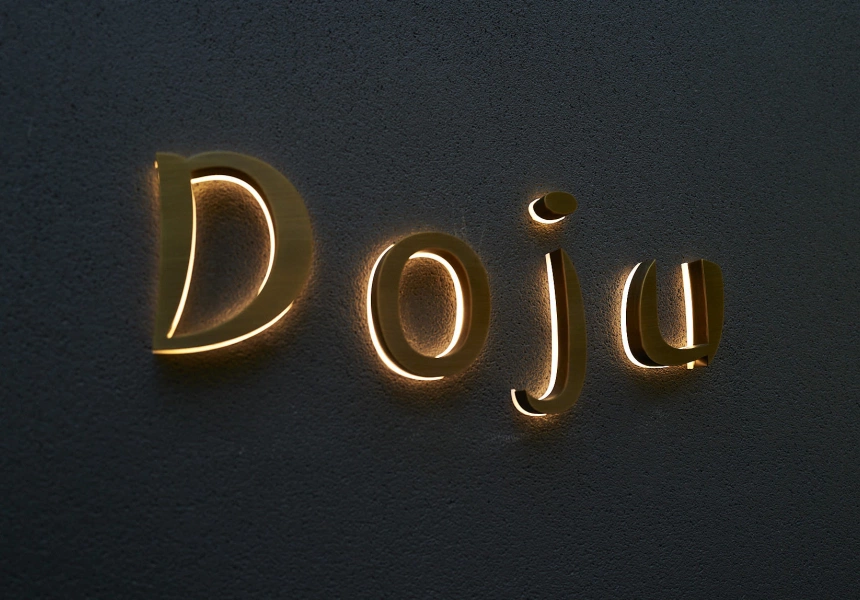In August 2023, New York Times restaurant critic Pete Wells wrote about how Korean restaurants remade fine dining in New York. As Wells put it, “Their rise, which has been remarkably swift, brings to an end the unquestioned supremacy of French cuisine that lasted for decades.”
While Melbourne has some catching up to do, chef Mika Chae’s Little Collins Street restaurant Doju, which opened earlier this month, is part of a growing list of Korean spots redefining our city’s restaurant scene – including cafe Ondo in Armadale and the CBD, and Jung Eun Chae’s near-impossible-to-get-into Cockatoo restaurant, Chae.
Mika, who is a distant relative of Jung Eun (the chefs think their grandparents are likely siblings), says he makes “a very Westernised style of [Korean] food”, but notes that each dish features Korean condiments and flavours. These condiments include ganjang (a Korean soy sauce that is lighter and less sweet than Chinese or Japanese soy sauces), doenjang (a fermented soybean paste) and gochujang (a fermented chilli paste).
Get the best of Broadsheet first with Today – our free newsletter. Our expert editors curate the day’s most interesting and useful stories – new restaurants, must-see exhibitions, fashion trends, travel spots and more.
SIGN UPWhen he first moved to Melbourne from the southern part of South Korea in 2013, Mika started working in kitchens as a dishwasher. A chef offered to teach him how to cook and Mika “hated it for a year” before he eventually grew to love it.
He first learnt to cook modern Australian food. And you’ll find dishes that draw from this early culinary experience on Doju’s menu – like lamb rump, cooked on the custom-made charcoal woodfired grill, and marron served with garlic butter.
There are also more typically Korean dishes, like hwae (a Jeju Island-style raw fish dish that Mika likens to sashimi) and ojingeo-jeot (a spicy fermented and salted calamari number that is typically served as a banchan or side dish). At Doju, Mika has played with ojingeo-jeot, turning it into a small snack that, as the chef says, can be eaten in one bite like sushi.
As Mika puts it, “Korean food: sometimes it’s very hard to approach for people [who aren’t familiar with the cuisine] … That’s why we’re trying to translate Korean food, to make it more approachable in Melbourne.”
Doju’s cocktail list prominently features the Korean alcohol soju and incorporates flavours from the country’s cuisine. There’s a spicy Korean Margarita, which is mixed with house gochujang and yuja-cheong (a marmalade made from yuja, a citrus fruit otherwise known by its Japanese name, yuzu), and a Spiced Pear Sour, which blends Korean pear juice with soju and is infused with star anise.
The restaurant is located in a former food court and the spot was previously a coffee shop. Mika oversaw a renovation of the space where every part of the kitchen (except for the dishwashing section) was completely refurbished. The bar, which runs the length of the restaurant, has seats for six and the dining space seats an additional 40.
Mika partly credits the increased prominence of Korean food in the West and in Western food media to the 2016 introduction of the Michelin guide to South Korea. He looks to restaurants like Korean fine diner Atomix (which ranked number eight on the 2023 World’s 50 Best Restaurants list) in Manhattan’s K-town and Jung Eun’s Cockatoo institution, Chae, for inspiration. And he thinks we’re just at the start of a new Korean-restaurant wave.
Doju
9/530 Little Collins Street, Melbourne
9576 7447
Hours:
Mon to Sat 5pm–10pm



